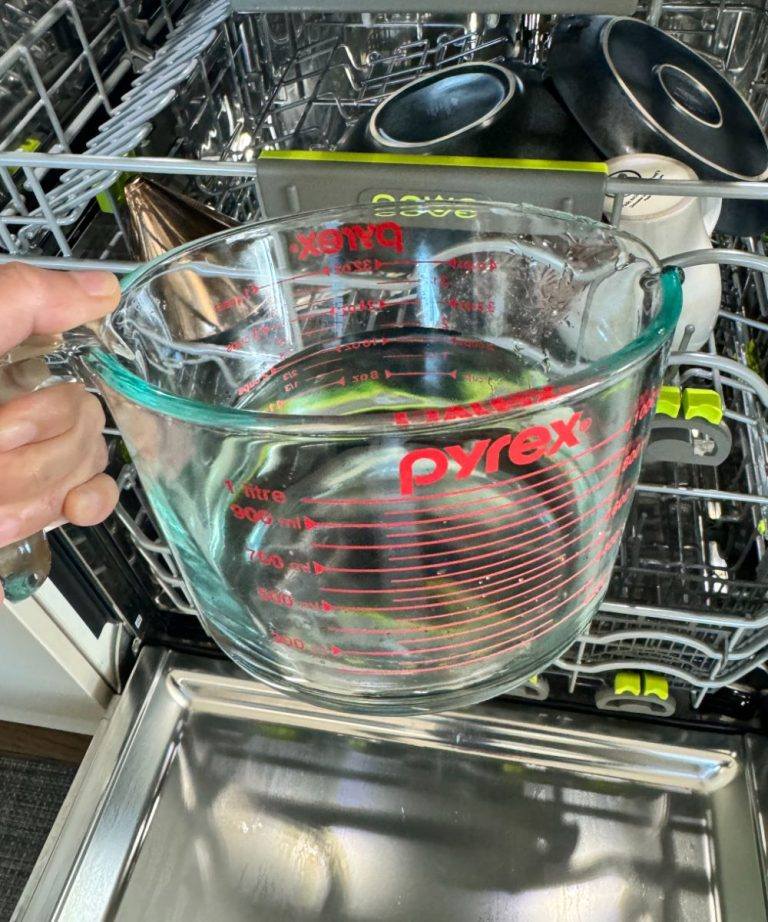ADVERTISEMENT
**Most People Don’t Clean Their Dishwasher When They Should: Here Are Tips to Know When and How to Clean It Right**
Dishwashers are some of the most frequently used appliances in modern kitchens. They provide the convenience of cleaning dishes quickly and efficiently, saving both time and effort. However, despite their usefulness, dishwashers are often neglected when it comes to regular maintenance. Most people use their dishwashers regularly without ever thinking about the fact that, just like any other appliance, it requires cleaning and care to keep it functioning optimally.
If you’ve ever noticed that your dishwasher doesn’t clean as effectively as it used to, or if there’s an unpleasant odor coming from it, chances are it’s due for a deep cleaning. In this article, we’ll explore why you should clean your dishwasher regularly, how often it needs cleaning, and provide you with a step-by-step guide on how to clean it properly. By the end of this article, you’ll be equipped with all the knowledge necessary to keep your dishwasher running smoothly for years to come.
### **Why You Need to Clean Your Dishwasher Regularly**
Before we dive into the “how-to,” it’s important to understand the *why*. Why is it so important to clean your dishwasher regularly, and what could happen if you don’t? Here are some compelling reasons why maintaining a clean dishwasher is essential for its performance and longevity:
1. **Build-up of Food Residue**: Every time you run a load, bits of food, grease, and soap residue can build up inside the dishwasher. Over time, this residue can clog filters, spray arms, and drain lines, leading to poor cleaning performance. If not addressed, the dishwasher can begin to leave streaks, spots, or food particles on your dishes.
2. **Foul Odors**: Dishwashers are constantly exposed to moisture, which can create a breeding ground for mold and mildew. A buildup of food particles combined with stagnant water in certain parts of the dishwasher can result in unpleasant odors. If your dishwasher starts smelling bad, it’s a clear sign that it needs to be cleaned.
3. **Clogged Spray Arms**: The spray arms inside your dishwasher are responsible for distributing water to clean your dishes. Over time, mineral deposits, food particles, and grease can clog the spray holes, making it harder for the water to be distributed effectively. This can result in dishes that aren’t properly cleaned or even left with soap residue.
4. **Reduced Efficiency**: When your dishwasher isn’t clean, it has to work harder to clean your dishes. This can strain the motor and other components, leading to inefficiency and potentially shortening the appliance’s lifespan. A clean dishwasher, on the other hand, operates at its best, ensuring your dishes are thoroughly cleaned with minimal energy and water usage.
5. **Better Hygiene**: Since dishwashers are designed to clean items that are in direct contact with food, it’s important that the appliance itself is free of bacteria and germs. Regular cleaning helps maintain a hygienic environment, ensuring that the dishes you put in the dishwasher come out clean and safe to use.
### **How Often Should You Clean Your Dishwasher?**
Most people only clean their dishwashers when they notice a problem, like unpleasant smells or poor cleaning performance. However, like many appliances, dishwashers require regular maintenance to function properly. So, how often should you clean your dishwasher? The answer depends on how frequently you use it, but in general, it’s a good idea to clean your dishwasher **at least once a month**. If you use it daily, consider cleaning it every couple of weeks.
For Complete Cooking STEPS Please Head On Over To Next Page Or Open button (>) and don’t forget to SHARE with your Facebook friends
